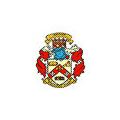Studies & Degrees in Philosophy
Choose where you would like to study Philosophy:
AlgeriaArgentinaArmeniaAustraliaAustriaAzerbaijanBangladeshBarbadosBelarusBelgiumBoliviaBosnia and HerzegovinaBrazilBulgariaCambodiaCanadaCentral African RepublicChadChileChinaColombiaCosta RicaCroatiaCubaCyprusCzech RepublicDenmarkDominican RepublicEcuadorEgyptEstoniaEthiopiaFijiFinlandFranceGermanyGhanaGreeceGuamHong KongHungaryIcelandIndiaIndonesiaIraqIrelandIsraelItalyJapanKenyaLebanonLesothoLiechtensteinLithuaniaMacedoniaMadagascarMaltaMauritaniaMexicoNetherlandsNew ZealandNicaraguaNigeriaPanamaPeruPhilippinesPolandPortugalPuerto RicoRomaniaRussiaSerbiaSlovakiaSloveniaSouth KoreaSpainSudanSwitzerlandThe United KingdomThe United StatesUgandaUkraineUruguayUzbekistanVietnamYemenZambiaZimbabwePhilosophy Study Programs
The term Philosophy is actually derived from the Greek word philosophia, which literally means “love of wisdom.” The science of inquiry, there are two main types of Philosophy, namely analytic philosophy, which is concerned mainly with logical approaches and synthetic philosophy, which involves merging concepts into a single system.
The Philosophy Program consists of several areas of thought, including the arts, the sciences, and religion. Philosophy used to be inseparable from, at other times even confused with, the natural sciences. This is easily evident from the fact that the earliest “scientists” were also philosophers themselves, as Plato, Newton, and Phytagoras, among innumerable others.
The roots of Philosophy trace far back to ancient Greece, where Schools of Thought were first to emerge. The pioneer of which was the Ionian School, where it was earliest established that natural phenomena could be explained with scientific basis, as opposed to merely the traditional mythological beliefs of the Greeks. The Pythagorean School further supported this scientific approach of study, although Pythagoreanism, as it became known, mainly used a fusion of supernatural and the mathematical ideas to explain nature and its wonders. From then on, countless other crowds of Philosophers sprouted, as the Stoics, and the Sophists, to name a few.
The Philosophy program broadens the range of opportunities for students. Some graduates of the Philosophy Program choose to engage in the subject further or pursue graduate studies in related fields as economics, education, or religion, among others.
Religion has been closely linked with Philosophy since the olden times. Neoplatonism, the fusion of Platonic and Pythagorean ideas, for one, is particularly linked with Jewish, Christian, and Muslim religious studies. Another illustration would be, Augustinian Philosophy, where Platonic philosophy was yet again combined with the Christian spirituality. Both examples sought to explain the concept of a God, all knowing, all-powerful, and beyond human understanding, and other ideas as predestination, and reasons behind the evils of the world.
Apart from the academe, graduates of the Philosophy program may also opt to go into law or the medical field. The Philosophy program is most commonly taken as a “pre-law” because the skills learned in the entirety of the course serve well for law school. These skills include taking in “heavy” reading material, formulating critical evaluations, and making ones way through arguments using logical approaches.
Some graduates of the program choose to venture into administrative positions both in the public and private sector. There are a lot of options, like whether to go into research, social work, or actual civil service, to name a few areas. Still others merge their philosophical knowledge with creativity and writing skills to deliver to an audience, as in journalism.
Graduates of the Philosophy program are trained to think and think decisively, for that matter. The opportunities with a liberal arts degree are practically limitless, for as Socrates put it, there is no greater knowledge than the awareness of the need for more knowledge. Anywhere in the world, thinkers will always be, more than welcome, needed.





